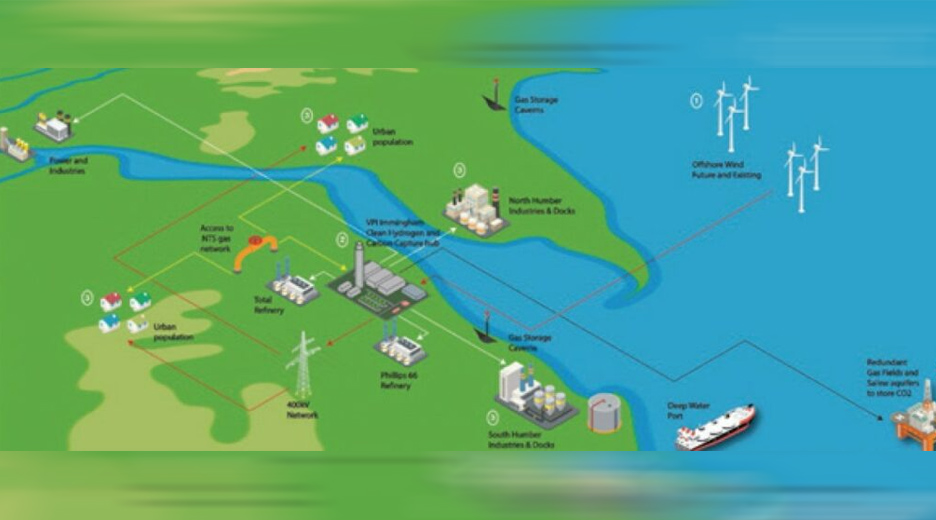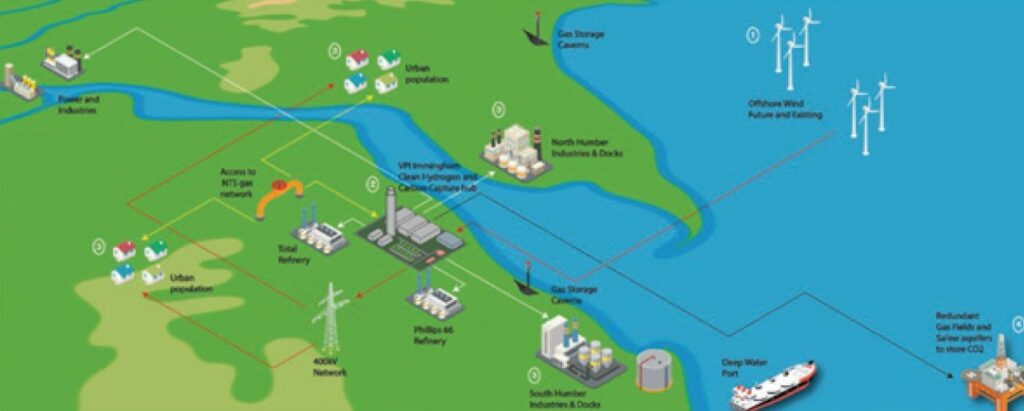By Uniper, Phillips 66 and VPI Immingham (UK)
Humber Zero is a large-scale decarbonisation and hydrogen project that aims to create zero-carbon industrial cluster in Humberside by reducing carbon
emissions from power and petrochemical facilities, as well as creating a sustainable platform for industrial growth and economic development.
Technical aspects
- The project will decarbonise up to 5MT/CO2 per annum of the UK’s industrial activity in the Humber region, with the potential for further decarbonisation in the future.
- 1 500 MWth of clean hydrogen will be produced, which is enough to power1 million homes
- The UK’s largest offshore wind development is planned with the capacity to produce 2.6WG of power initially, growing to 6WG by 2028. National Grid estimates that up to 50% of this will not be needed off-peak, so Humber Zero will use the excess capacity to pilot green hydrogen gas production.
- The empty gas fields and saline aquifers located at 20 miles offshore from the Humber estuary will enable the storage of CO2 indefinitely and with a capacity of 720 Mt CO2. Over 40 years’ worth of emissions from British industry could therefore be stored.
Contribution to energy transition
Humber Zero will support the Humber region move towards zero industrial emissions, by providing clean hydrogen for over a million homes. A fully functioning low-carbon industrial hub is expected from 2025.







































































